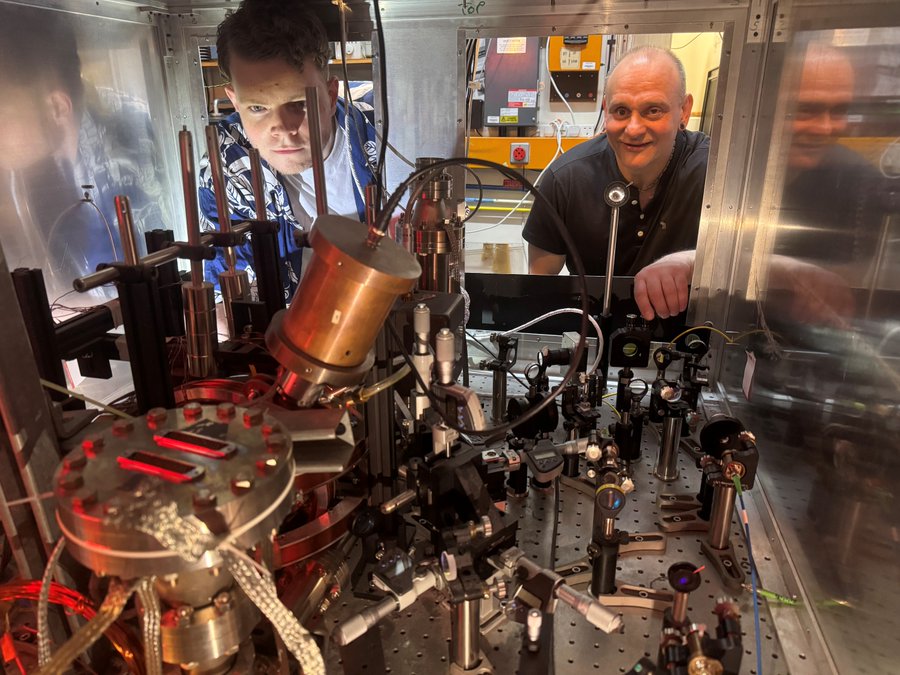
Researchers at the University of Sussex have developed a quantum sensor capable of detecting electric fields with unprecedented sensitivity, surpassing the previous global benchmark by two orders of magnitude. The work, led by Professor Winfried Hensinger and Falk Bonus at the Sussex Centre for Quantum Technologies, was published in Nature Physics and showcases a novel application of trapped-ion quantum systems for ultra-sensitive measurement tasks.
The system uses a single charged ion in a vacuum held in quantum superposition to detect low-frequency electric fields. Originally developed to identify and mitigate noise sources in trapped-ion quantum computers, the new technique represents a powerful advance in quantum sensing, with real-world applications across defense, underwater communications, geological prospecting, and brain imaging. The team claims the sensor is already 100 times more sensitive than previous methods and could potentially reach a one-million-fold improvement using optimized microchip designs and alternative ion species.
While designed to support the construction of high-fidelity quantum computers, the technology may also revolutionize brain imaging and neurofeedback. Medical researchers have cited its potential to provide less invasive, real-time 3D imaging of brain activity, potentially transforming the diagnosis and treatment of conditions like depression, epilepsy, and OCD.
Read more in the University of Sussex announcement here, and explore the peer-reviewed study in Nature Physics here.
June 13, 2025

